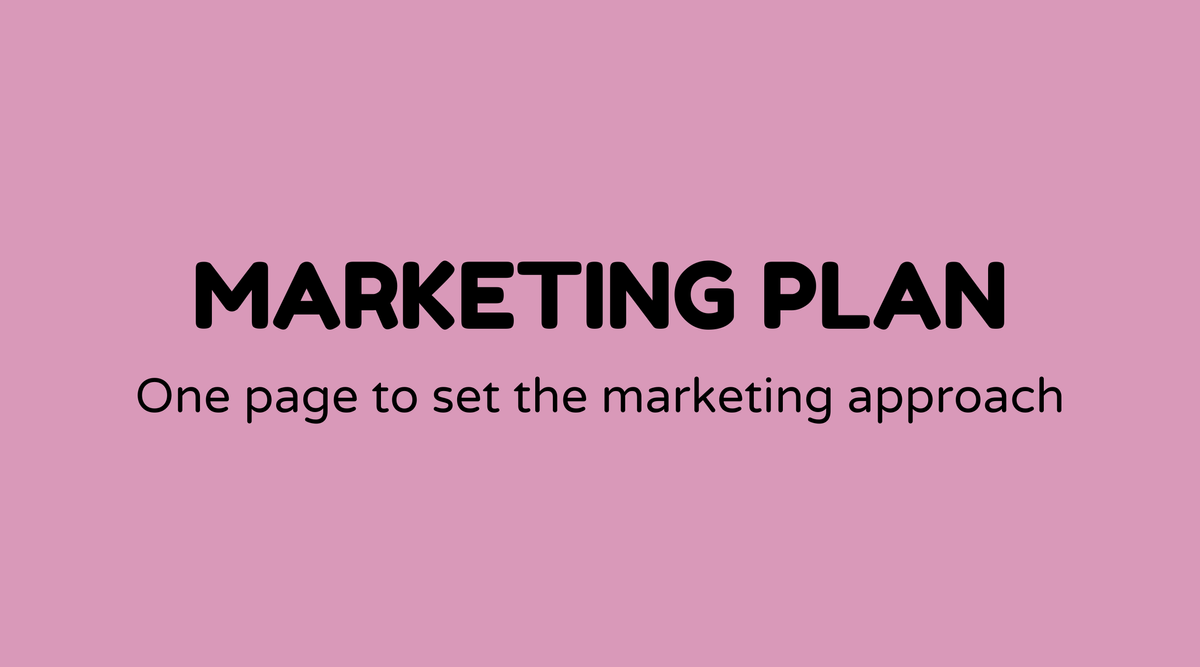Marketing Plan (1 Page)

Overview of Marketing Plan
A marketing plan serves as a framework that outlines how an organization intends to promote its products or services. It identifies target markets, key messages, and the tools needed to connect with potential customers. If you're looking to broaden your business’s reach or enhance sales figures, a thoughtful marketing plan can guide you effectively.
Why a Marketing Plan Matters
A marketing plan is important because it acts as a roadmap to systematically engage target audiences. Without a structured approach, marketing efforts can become chaotic, unproductive, and costly. It enables businesses to align their marketing activities with overarching business objectives and provides a clear strategy moving forward. Internally, it aids in coordinating teams and resources effectively. Externally, it ensures consistent messaging which cultivates brand identity over time.
What is a Marketing Plan
A marketing plan is a strategic document that encompasses various elements, such as market analysis, audience evaluation, marketing objectives, and specific actions to achieve those objectives. It acts as a guideline, often incorporating budget considerations and timelines for execution. It also assesses competitors and identifies the unique selling propositions (USPs) of the organization's offerings.
How to Create a Marketing Plan
-
Analyze Your Situation: Use a SWOT analysis to evaluate your company's Strengths, Weaknesses, Opportunities, and Threats.
-
Define Your Target Audience: Understand who your ideal customers are by creating personas that reflect demographics, interests, and purchasing behaviors.
-
Set Your Marketing Goals: These should be SMART – Specific, Measurable, Achievable, Relevant, Time-bound.
-
Develop Strategies and Tactics: Determine which channels and tools (social media, email outreach, SEO, content creation) will effectively connect with your audience.
-
Create a Budget: Allocate resources appropriately across various marketing initiatives to ensure a strong return on investment.
-
Measure Your Results: Use analytics and KPIs to assess the effectiveness of your marketing plan regularly.
Examples of Marketing Plans
Various examples illustrate how different organizations utilize marketing plans:
- New product launch plans: Featuring thorough market analysis and anticipated customer engagement strategies.
- Digital marketing plans: Concentrated on online visibility through SEO, PPC, and social media tactics.
- Content marketing plans: Establishing a brand's voice with consistent blog entries, videos, and infographics.
FAQs
What should a marketing plan include?
A marketing plan should encompass market research, clearly defined audience and objectives, strategies, budgeting, and performance measurement methods.
How long should a marketing plan cover?
Typically, a marketing plan spans one year, but it can vary based on organizational needs.
How often should you review a marketing plan?
Regularly, ideally every three months, to adjust strategies according to market dynamics.
Can small businesses benefit from a marketing plan?
Certainly! A well-structured plan can help small businesses effectively utilize limited resources and connect with new customers.
Is a marketing plan the same as a business plan?
No. A business plan outlines an entire organization’s strategy, while a marketing plan focuses specifically on how to promote and sell products or services.
How can I measure the success of a marketing plan?
Monitor KPIs such as sales growth, lead generation, customer engagement, and conversion rates. Adjust strategies as necessary based on this data.



